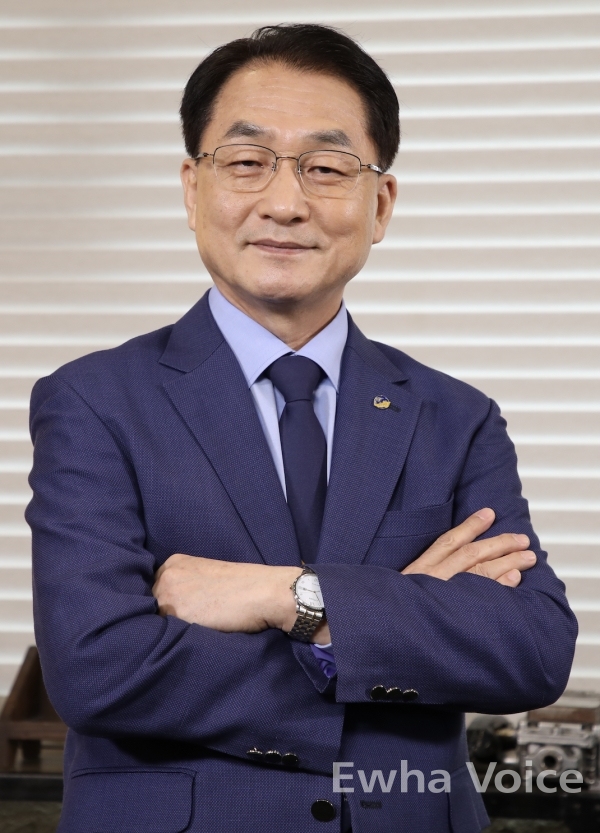
On March 26, North Korea launched two short-range ballistic missiles (SRBM) over the east coast of South Korea. This was only a week after the launching of SRBM on March 19 and 10 days after the intercontinental ballistic missile (ICBM) launch on March 16. Such North Korea’s recent military actions are causing a continuous sense of tension within the Korean peninsula and undermining peace and stability in the entire international community.
At a Cabinet meeting held on March 28, President Yoon Suk Yeol instructed the Ministry of Unification to stop assisting North Korea from now on and declared that the government cannot give even a single Korean won in the situation where North Korea continues to develop nuclear weapons. President Yoon’s hard-line stance and instructions implies the government’s strong determination to respond hawkishly to the provocative manner of North Korea.
Moon Seong-Mook, chief of the Unification Strategy Center at the Korea Research Institute for National Strategy, shared his thoughts on North Korea’s recent military actions.
Moon has worked at the Ministry of National Defense’s policy office for 17 years since 1992, and has participated in about 50 military talks in which he met and negotiated with North Korean soldiers in person. Based on his expertise in North Korea policy and unification issues, Moon is currently hosting the military radio and working as the editor-in-chief of the National Security Strategy. He explained that North Korea is only focusing on its development of nuclear weapons and missiles to achieve North Korea- centered unification, which it has been trying for their whole time since the division of the Korean peninsula.
As for the stance South Korea must take, Moon proposed a two-way strategy to respond to the current military actions of North Korea.
“The primary goal is to protect the nation and its people from North Korea’s nuclear missile threat, which is the urgent priority South Korea is currently facing right now,” he said.
For this, Moon emphasized the consolidation of the alliance by constantly developing extended deterrence and nuclear umbrellas that the United States provides, and the Korean-style triaxial system consisted of Kill Chain, Korea Air and Missile Defense (KAMD) and Korea Massive Punishment and Retaliation (KMPR) at the same time.
Moon also stressed that North Korea should be changed for a sustainable peace on the Korean peninsula in the long run, mentioning the case ofGerman unification that took place in 1990. Just as East Germans directly destroyed communism in East Germany and achieved unification, he believed that South Korea should lead them to a venue of dialogue to protect sustainable peace on the peninsula.
Nathan Evans, an American who has resided in Korea and has been working as an English teacher for three years, felt that the relationship between the two Koreas seemed unusual compared to the one in the pastwhenever looking at the recent news.
“As a foreigner, I do not know the details of the long-standing relationship between the two countries,” Nathan said. “But in my view, it seems that the relationship is unlikely to improve for the time being, as North Korea continues to launch missiles and show offensive military actions.”
Meanwhile, some analysts revealed the cost North Korea spent for its missile launch last year was the same as the price of rice that all residents in the country could eat for 46 days. Moreover, North Korea has also been suffering from chronic food shortages due to worsening weather conditions recently and a shortage of fertilizers.
Professor Park Won Gon from the Graduate School of North Korean Studies associated North Korea’s fierce diplomatic response with the internal economic difficulties that the country iscurrently facing.
“North Korea’s economic difficulties that resulted from the prolonged COVID-19 lockdown and economic sanctions by the international community have brought about the necessity to strengthen the unity of the country, and their strong diplomatic response is their way of strengthening,” he explained.
Despite the deteriorating food shortage, North Korea shows an excessive obsession with missile launches that consume a significant amount of resources. Considering that the cost of the missile launched last year was equivalent to the cost of rice that could feed all North Korean citizens for 46 days, the North Korean government’s continuation of the missile launches is causing humanitarian problems.
Professor Park added to this by stating it is true that the response of the North Korean government to the issue of the well-being of their citizens is a serious issue from a universal perspective.
“However, their main focus is not on the well- being of their citizens but on maintaining the regime itself,” he said.
Meanwhile, for the future relationship between the two Koreas, Professor Park renewed the need to change North Korea for peace on the peninsula. As a result, people in North Korea, whom should be regarded as compatriots as well, can enjoy freedom of participation and economic abundance. In addition, South Korea can enhance and develop national power.

